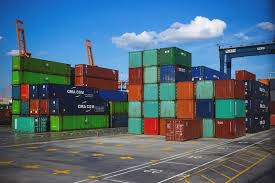A maritime research group, Sea Empowerment Research Centre (SEREC), has raised alarm over Nigeria’s declining port activities, warning that the country could lose as much as N1.6 trillion every year if it fails to take urgent action. The group said Nigeria is at risk of losing its status as West Africa’s main logistics hub, a development that could trigger huge financial losses and reduce foreign investment.
In a statement released over the weekend and signed by SEREC’s Head of Research, Mr Eugene Nweke, the group said Nigeria could lose about N130 billion yearly in customs duties, value-added tax (VAT) on imports, and other tax revenues due to the drop in port activity. Mr Nweke added that this would significantly affect government income and limit funding for infrastructure and essential public services.
He explained, “If port activity continues to drop, we may see a 10 to 20 percent fall in government revenue. This could mean a total loss of about N300 billion to N600 billion annually.” According to him, businesses are now looking towards other West African countries with more efficient ports, which makes Nigeria less attractive for logistics and shipping operations.
Mr Nweke, who is also a former National President of the National Association of Government Approved Freight Forwarders (NAGAFF), warned that Nigeria may miss out on investment opportunities worth between N500 billion and N1 trillion. “If there’s a 20 percent drop in foreign investment in the logistics sector, Nigeria could lose up to N1 trillion in new investments,” he said.
SEREC estimates that the combined effect of lower tax revenue and reduced investment could cost Nigeria between N800 billion and N1.6 trillion every year.
Mr Nweke noted that recent reports suggesting that Nigeria has lost its position as the leading logistics hub in West Africa should not be taken lightly. He described it as a wake-up call for both government authorities and private sector stakeholders. According to him, this development has serious implications for the Nigerian economy, and immediate steps must be taken to fix the problems affecting the ports.
He advised the government to focus on digitalising port operations, especially through single-window trade platforms. These platforms allow all import and export procedures to be processed on one system, which helps reduce delays and costs.
To improve the competitiveness of Nigeria’s ports, Mr Nweke said the government must also develop a national logistics policy. “This policy must be supported by infrastructure reforms,” he said. “We need to improve rail connections to ports, build secure dry ports, and establish special logistics zones. These steps will make our logistics sector more efficient and secure.”
One of the biggest problems facing the country’s ports is the congestion and long delays at the Apapa and Tincan ports in Lagos. Mr Nweke called on the federal government to tackle these issues head-on if it wants to reduce costs and improve turnaround time for ships and cargo.
He also urged the government to work closely with industry players and experts in the maritime sector to come up with lasting solutions. “Nigeria must not allow itself to be pushed out of the regional logistics map,” he said.
Mr Nweke concluded by saying that the government and private sector must work hand in hand to improve Nigeria’s logistics competitiveness, boost economic activities, and protect its position in regional trade.
The concern raised by SEREC adds to the ongoing debate about Nigeria’s infrastructure and trade environment. As regional competitors like Ghana, Togo, and Benin continue to upgrade their ports and logistics systems, Nigeria is under increasing pressure to act quickly to avoid being left behind.
